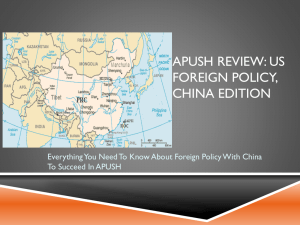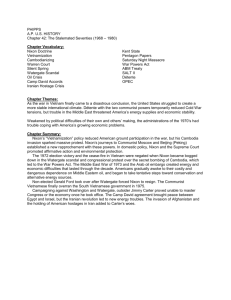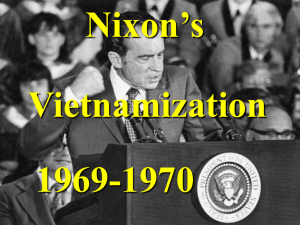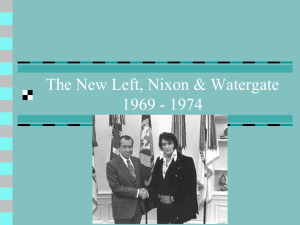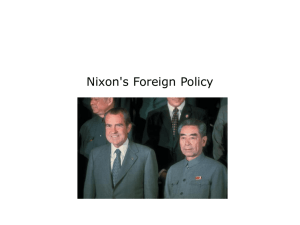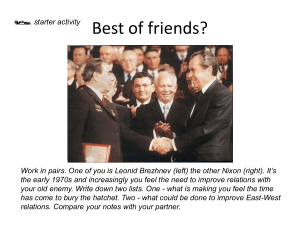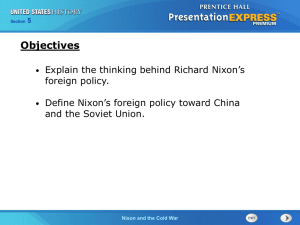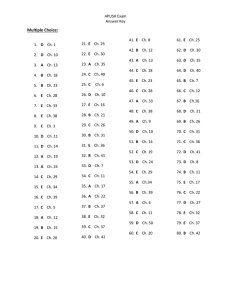Chapter 39: The Stalemated Seventies
advertisement
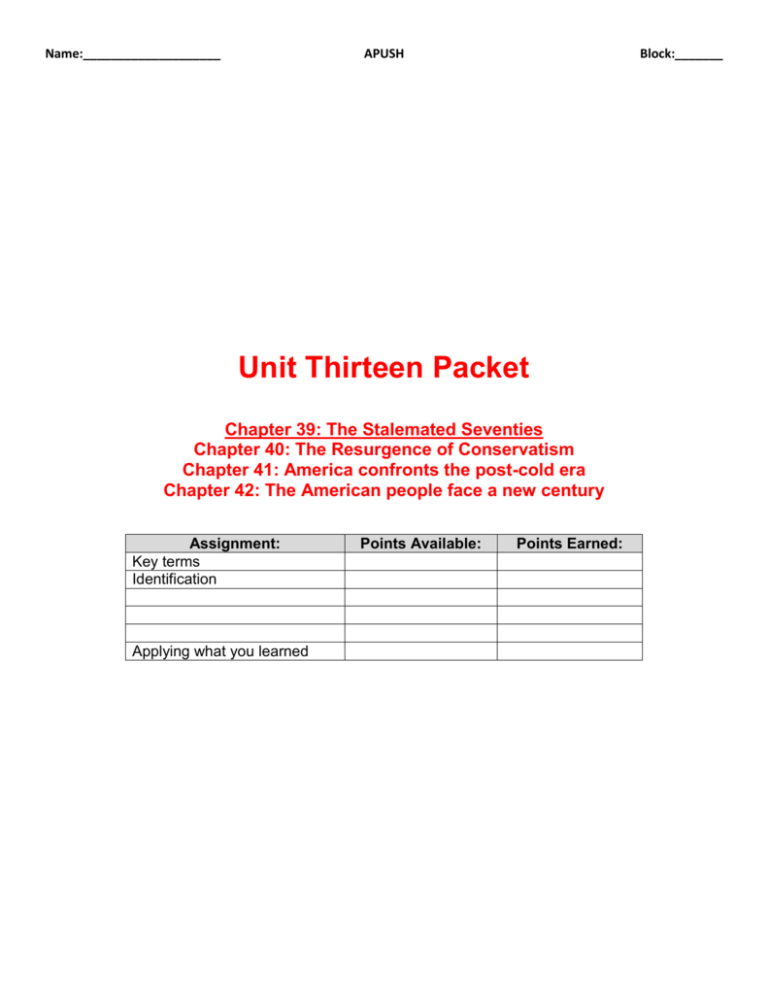
Name:____________________ APUSH Block:_______ Unit Thirteen Packet Chapter 39: The Stalemated Seventies Chapter 40: The Resurgence of Conservatism Chapter 41: America confronts the post-cold era Chapter 42: The American people face a new century Assignment: Key terms Identification Applying what you learned Points Available: Points Earned: Name:____________________ APUSH Block:_______ Content Objectives: ▪describe Nixon’s foreign policy in relation to Vietnam, the Soviet Union, and Communist China ▪analyze Nixon’s domestic policies, his opposition to the “Warren Court,” his “southern strategy”, and his landslide victory against George McGovern in 1972 ▪examine the conflicts created by the secret bombing of Cambodia, the American withdrawal from Vietnam, and the first Arab oil embargo ▪discuss the Watergate scandals and Nixon’s resignation ▪explain the related economic, energy, and Middle East crises of the 1970s and why both Republican and Democratic administrations were unable successfully to address them ▪describe the racial tensions of the 1970s and the rise of the new feminist movement ▪discuss the Iranian crisis and its disastrous political consequences for President Carter Textbook Reading Assignment: The American Pageant Pages 1002-1028 Supplemental Reading Assignments: none Chapter theme(s): Name:____________________ Key Terms Assignment: Vietnamization Nixon Doctrine Silent majority My Lai Massacre Kent State University Pentagon Papers Détente Miranda warning EPA Watergate ERA Roe v. Wade Henry Kissinger Rachel Carson Gerald Ford James Earl Carter, Jr. APUSH Block:_______ Name:____________________ APUSH Block:_______ Identification Supply the correct identification for each numbered description. 1. __________ Nixon’s policy of withdrawing American troops from Vietnam while providing aid for the South Vietnamese to fight the war 2. __________ The Ohio university where four students were killed during protests against the 1970 invasion of Cambodia 3. __________ Top-secret documents, published by The New York Times in 1971, that showed the blunders and deceptions that led the United States into the Vietnam War 4. __________ The first major achievement of the Nixon-Kissinger détente with the Soviet Union, which led to restrictions on defensive missile systems 5. __________ Nixon’s plan to win reelection by curbing the Supreme Court’s judicial activism and soft-pedaling civil rights 6. __________ Term for the new group affirmative action policy promoted by the Nixon administration 7. __________ A Washington office complex that became a symbol of the widespread corruption of the Nixon administration 8. __________ The law, passed in reaction to the secret Cambodia bombing, that restricted presidential use of troops overseas without congressional authorization 9. __________ Arab-sponsored restriction on energy exports after the 1973 Arab-Israeli war 10. __________ Nixon-Ford-Kissinger policy of seeking relaxed tensions with the Soviet Union through trade and arms limitation 11. __________ International agreement of 1975, signed by President Ford, that settled postwar European boundaries and attempted to guarantee human rights in Eastern Europe 12. __________ Proposed constitutional amendment promoting women’s rights that fell short of ratification 13. __________ Supreme Court decision that declared women’s right to choose abortion. 14. __________ Two historic sites seized by American Indian activists in 1970–1972 to draw public attention to Indian grievances __________ 15. __________ Provision of the 1972 Education Amendments that prohibited gender discrimination and opened sports and other arenas to women
